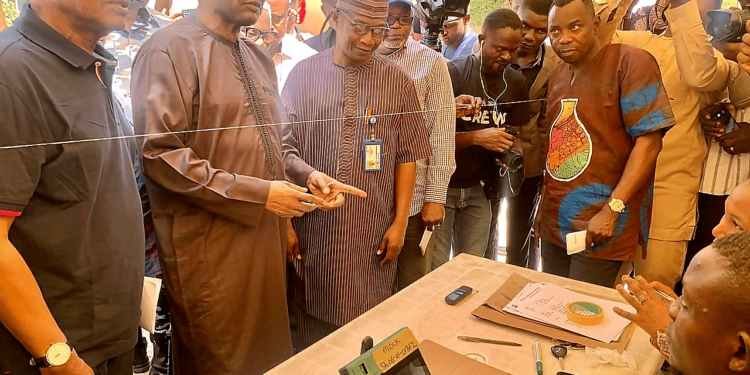Since 2011, when the Independent National Election Commission (INEC) introduced the use of technology in election processes in Nigeria starting with the card reading device, there has been a gradual increase in the level of trust citizens have in elections and their outcomes. At one point, the debate was about the use of incident forms when the card readers failed. But in the last few years, INEC has conducted a number of off-cycle elections, governorship elections in Anambra, Ekiti and Osun, to be specific.
These elections earned the commission high marks in the way they were conducted as it introduced the Bimodal Voter Accreditation System (BVAS),which appeared to perform better than the card readers and had also gotten rid of incident forms.
There is no debating the fact that the off cycle elections, won mostly by opposition political parties, had a lot to do with the level of confidence Nigerians had in INEC ahead of the February 25 presidential election and the belief that their votes would count.
Unfortunately, INEC did not meet the expectations of a large segment of the voting population in the just concluded Presidential and National Assembly election. It wasn’t that the BVAS didn’t work. But for reasons yet to be explained to the satisfaction of all political parties, election observers and civil society groups as well as the electorate, INEC failed to upload election results from the 176,000 polling units across the country in real time creating not only an issue of credibility for the just concluded presidential election, but also eroding trust and confidence for the upcoming governorship and state assembly elections.
In any political contest, it is expected that there will be winners and losers. And it is only expected in a divided country like Nigeria that the losing parties will not only refuse to concede, but will question the credibility of the elections altogether. In this case, however, international and local observers have raised crucial questions about the transparency of INEC in the processes leading to the declaration of results. Key among them was the failure to upload results on the commission’s results’ viewing portal, which it set up,particularly for that purpose.
The governorship election is now only days away. The commission is trying to make amends by promising to work harder to overcome the challenges experienced in the last elections, while acknowledging that nothing else will be acceptable to Nigerians. Chairman of the commission, Mahmood Yakubu, last weekend went as far as saying that staff found to be negligent, whether regular or ad hoc, including collation and returning officers, would not be involved in the governorship elections.
2023 Polls: 18 CSOs Protest Against INEC, Demand Yakubu’s Resignation
He said the commission has intensified the review of the technology to ensure that glitches experienced, particularly with the upload of results, are rectified. Barely two days later, there were reports that the commission was challenging the order of the Court of Appeal granting the application of the presidential candidates of the Labour Party, Peter Obi and that of the Peoples Democratic Party, Atiku Abubakar, leave to scan and make photocopies of voter’s registration, ballot papers and inspect the BVAS machines used in the conduct of the election for the office of the President of the Federal Republic of Nigeria held on the Feb. 25.
The Court of Appeal had given the “order granting leave to the applicants to carry out Digital Forensic Inspection of BVAS machines used for the conduct of the Feb. 25 election for the Office of President of the Federal Republic of Nigeria.” The court, which serves as the election tribunal in this instance, in its ruling on this Labour Party and PDP application said, “That leave is hereby granted to the applicants to carry out Digital Forensic Inspection of BVAS machines used for the conduct of the 25 February 2023 election for the office of President of the Federal Republic of Nigeria.”
But with the position of the commission and the application it is making to the court that it needs to reconfigure the BVAS for the governorship and state houses of assembly elections, it is basically seeking the court’s permission to destroy evidence that can be used to challenge the outcome of the presidential election.
And it is either this or the governorship election will be conducted without the BVAS. This suggests that the commission was not really prepared to be transparent and accountable to Nigerian voters. While the stakes in the governorship elections are as high as that of president, Nigerians should not have to choose between accepting one or discarding another.
This does not only put the court in a bind, it effectively holds the democratic process hostage. Whether the commission gets to reconfigure the BVAS machines is left to the court. But in Saturday’s election, INEC must ensure it lives up to the expectations of millions of Nigerians who have gone through the trouble of registering as voters, queuing up long hours to collect the Permanent Voters Cards(PVCs) and even exercised their franchise during the presidential and National Assembly elections.



